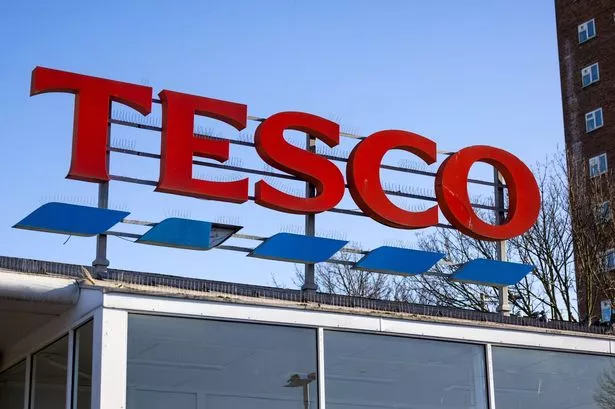The announcement that tesco cheese recalled products has alarmed shoppers across the UK. Several cheese varieties sold in Tesco stores have been linked to potential contamination with Listeria monocytogenes, a harmful bacteria that can cause serious health complications. Customers are strongly advised to check their homes and avoid consuming any affected products. Awareness and quick action are essential to ensure safety.
Shoppers need clear guidance on the recall, including which products are involved, how to identify them, and what steps to take. This article provides comprehensive information on the Tesco cheese recalled, helping UK consumers stay informed, protect their health, and take immediate action if necessary.
What Happened – Details of the Tesco Cheese Recalled
In early 2025, tesco cheese recalled issued several recalls for specific cheese products due to potential Listeria contamination. The affected cheeses included Le Superbe Raclette Cheese, Old Irish Creamery Irish Cheddar, Horgans Irish Cheddar, and Macroom Buffalo Buffaloumi. Each recall was issued after routine testing detected possible bacterial contamination, prompting urgent public safety warnings.
The recalled products were identified by particular batch codes, weights, and use-by dates, which were clearly outlined in Tesco’s official notices. Tesco worked closely with suppliers, including Castelli UK Ltd, to ensure that all affected items were removed from shelves promptly. Shoppers who purchased any of these cheeses were advised to return them immediately for a full refund.
Why the Recall Was Issued – Understanding the Listeria Risk
The tesco cheese recalled warnings were triggered by the presence of Listeria monocytogenes, a bacteria known to cause listeriosis. Listeriosis symptoms include fever, muscle aches, nausea, and gastrointestinal issues. While healthy individuals may experience mild symptoms, the infection can be life-threatening for pregnant women, newborns, elderly people, and those with weakened immune systems.
Listeria contamination in dairy products is a serious concern globally, and even a small quantity of the bacteria can grow rapidly if stored improperly. Following the recall notice and avoiding consumption of the affected cheese is crucial to prevent any potential health risks. Tesco’s proactive measures aim to safeguard public health.
How to Identify Recalled Tesco Cheeses

Shoppers should carefully check their refrigerators for cheeses that match the recalled products. Look for product names, batch codes, and use-by dates highlighted in Tesco’s official notices. Le Superbe Raclette Cheese, Old Irish Creamery Irish Cheddar, and Horgans Irish Cheddar were among the main cheeses affected in recent recalls.
Reading the packaging thoroughly can help customers quickly determine if their product is part of the recall. Tesco has also provided online guidance and detailed descriptions of the affected cheeses, making it easier for shoppers to take immediate action. If there is any doubt, it is safer to return the product rather than risk exposure to Listeria.
What to Do if You Have Bought Recalled Cheese
If you have purchased any of the tesco cheese recalled products, do not consume them under any circumstances. Returning the items to your nearest Tesco store for a full refund is the safest option. Tesco also encourages customers to contact their Customer Services department if further guidance is needed.
It is equally important to clean any surfaces, utensils, or cutting boards that may have come into contact with the recalled cheese. Proper hygiene practices can help reduce the risk of Listeria spreading within your kitchen. Taking these precautions ensures that your home environment remains safe.
Tesco’s Response and Measures to Prevent Future Recalls
Tesco acted quickly to address the recalls and protect customers. The supermarket has emphasised its commitment to food safety by increasing monitoring of cheese products and implementing stricter quality control checks. Supplier audits and routine testing are now more robust to prevent future contamination incidents.
Shoppers are encouraged to stay informed about product recalls through Tesco’s website and official announcements. By communicating recalls promptly and providing clear guidance, Tesco aims to reassure UK customers that their food safety is a top priority. These measures are part of a broader strategy to maintain trust and transparency.
Tips for UK Shoppers to Stay Safe
To minimise risk, UK shoppers should always check labels, batch codes, and use-by dates when purchasing cheese. Registering for Tesco email alerts and following UK food safety agencies can keep customers updated on potential recalls. Awareness is the first line of defence against foodborne illnesses.
Proper storage, timely consumption, and good hygiene practices in the kitchen are also essential. Ensuring that cheese is kept at the correct temperature and avoiding cross-contamination with other foods can further reduce health risks. Being cautious and well-informed ensures that cheese consumption remains safe and enjoyable.
Conclusion
The tesco cheese recalled alerts highlight the critical importance of food safety awareness. Affected cheeses, including Le Superbe Raclette and various Irish Cheddar products, must not be consumed and should be returned for a full refund. Following Tesco’s safety advice promptly can prevent serious health risks caused by Listeria contamination.
Shoppers should remain vigilant, monitor official recall notices, and act quickly if they suspect they have purchased affected products. Staying informed and taking precautions ensures that UK homes remain safe and free from recalled cheeses, protecting families from avoidable health hazards.
FAQs
Which Tesco cheeses have been recalled recently?
What are the health risks of consuming contaminated cheese?
How can I check if my Tesco cheese recalled is affected?
Can I still eat other Tesco cheese recalled products safely?
How do I return recalled cheese to Tesco?
Who is most at risk from Listeria contamination?
Where can I get updates on Tesco product recalls?
Has Tesco improved food safety measures after the recalls?
You may also read: Foodmanjobs: Find the Best Food & Drink Manufacturing Jobs in the UK


